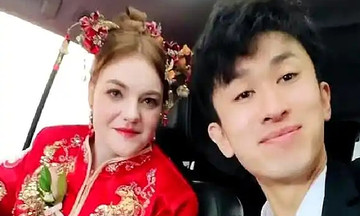A shared past forms a strong bond.
Psychology professor Gary W. Lewandowski of Monmouth University says that the length of a relationship isn't enough to guarantee a lasting marriage. "It's about what you've been through together," he explains. Lewandowski believes that shared experiences, memories, and overcoming adversity together are what truly build happiness, trust, and intimacy in a marriage.
The bond older men share with their wives isn't just about shared routines; it's about growing and overcoming challenges together. With their wives, they feel safe to express themselves fully and authentically.
Facing adversity builds resilience and fosters a positive outlook. According to the Journal of Social and Personal Relationships, healthy relationships and spousal support can lessen the negative impact of life's difficulties. Couples who navigate tough times together emerge stronger, happier, and more deeply connected. As men age, they cherish this shared journey as a testament to the enduring power of love.
Egos soften with age.
According to relationship expert Dr. Steven Stosny, as men mature, they learn to adjust their self-esteem and become less self-centered. They're no longer afraid to show vulnerability, shame, or fear of being hurt. They become more sincere and connected.
This is why many men feel closer to their wives as they get older. Their egos take a backseat, making way for trust and understanding.
 |
Illustration: Shutterstock |
Illustration: Shutterstock
Increased confidence strengthens the bond.
A study in the journal Psychological Science indicates that self-esteem can be boosted by positive relationships. While one shouldn't derive their entire self-worth from another person, a long-term marriage provides a crucial environment for developing confidence.
Older men are generally more comfortable expressing their emotions and needs, and they no longer seek attention in negative ways. They understand their value in the relationship and don't need to prove it through control or manipulation.
Providing support becomes a natural expression of love.
With age, many men become more comfortable expressing their feelings and showing care for their partners. They know how to offer support during tough times, choose the right gift for a special occasion, or simply listen when their wives need a quiet moment. This support isn't innate; it's built through open communication, trust, and shared experiences. The longer they're together, the better they understand each other, often sensing their wives' needs without a word being spoken.
Respect deepens over time.
A study published in International Psychogeriatrics reveals that as couples age and face challenges together, the level of respect and responsibility within their relationship increases. Older men value respect deeply. They're no longer afraid of conflict or judgment when expressing their thoughts. They understand that respect is the foundation of trust, support, and long-term companionship.
Comfort with vulnerability fosters deeper connection.
Many men grow up with the misconception that masculinity equates to suppressing emotions and vulnerability, making it difficult for them to open up and maintain healthy relationships. However, over time and through the experience of a positive relationship, they learn to be more open. When they no longer fear expressing vulnerability, they connect with their wives on a much deeper level.
Shared values remain a cornerstone of the relationship.
Research from Utah State University shows that couples who share similar values tend to have higher marital satisfaction and healthier relationships. This holds true for long-term couples, not just those in new relationships. As men age, many maintain the habit of engaging in meaningful conversations with their wives about their beliefs, needs, and how these evolve over time. This ongoing open communication is key to maintaining a lasting connection.
Rediscovering each other strengthens the bond in later years.
As children grow up and old age approaches, many couples enter a phase of "quiet distance." Schedules, priorities, and perspectives shift. However, many men actively seek to rediscover their partners, acknowledging their evolving identities, needs, and desires. They create space for both of them to grow, adapt, and rediscover the companionship that initially brought them together.
Nhat Minh (Yourtango)












